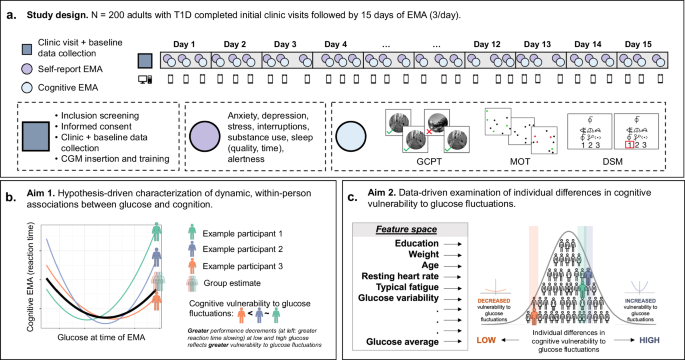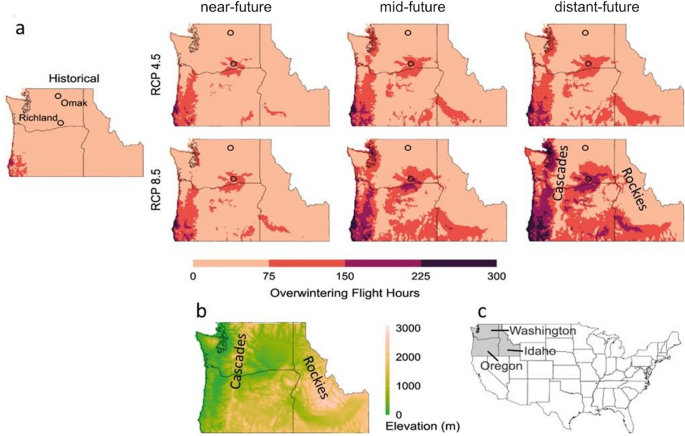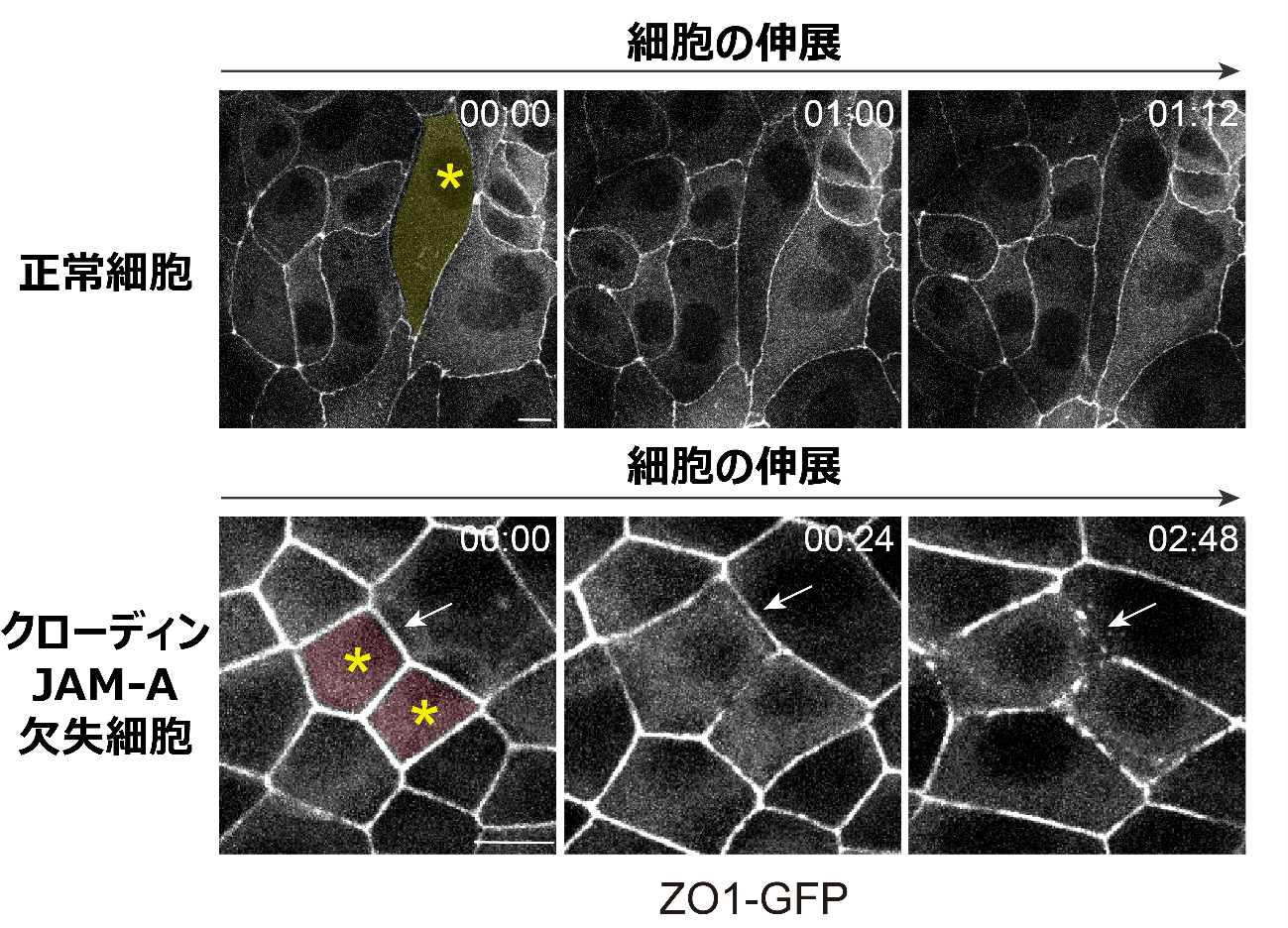2024-03-25 ワシントン州立大学(WSU)
ワシントン州立大学とマサチューセッツ州のマクリーン病院の研究チームによる研究で、1型糖尿病の患者の血糖値の急激な変動が脳の情報処理能力に影響を与えることが示された。特に低い血糖値や高い血糖値は、認知処理速度が遅くなり、正確性が低下することが明らかになった。この研究は、従来の実験室での調査とは異なり、日常生活での血糖の変動が認知に及ぼす影響を初めて調査したものであり、血糖値の極端な変動を最小限に抑えることが、認知機能の改善につながる可能性があることを示唆している。
<関連情報>
- https://news.wsu.edu/news/2024/03/25/blood-sugar-lows-and-highs-hamper-brain-function-in-type-1-diabetes/
- https://www.nature.com/articles/s41746-024-01036-5
1型糖尿病におけるグルコースと生態学的瞬間認知の動的関連性 Dynamic associations between glucose and ecological momentary cognition in Type 1 Diabetes
Z. W. Hawks,E. D. Beck,L. Jung,L. M. Fonseca,M. J. Sliwinski,R. S. Weinstock,E. Grinspoon,I. Xu,R. W. Strong,S. Singh,H. P. A. Van Dongen,M. R. Frumkin,J. Bulger,M. J. Cleveland,K. Janess,Y. C. Kudva,R. Pratley,M. R. Rickels,S. R. Rizvi,N. S. Chaytor & L. T. Germine
npj Digital Medicine Published:18 March 2024
DOI:https://doi.org/10.1038/s41746-024-01036-5

Abstract
Type 1 diabetes (T1D) is a chronic condition characterized by glucose fluctuations. Laboratory studies suggest that cognition is reduced when glucose is very low (hypoglycemia) and very high (hyperglycemia). Until recently, technological limitations prevented researchers from understanding how naturally-occurring glucose fluctuations impact cognitive fluctuations. This study leveraged advances in continuous glucose monitoring (CGM) and cognitive ecological momentary assessment (EMA) to characterize dynamic, within-person associations between glucose and cognition in naturalistic environments. Using CGM and EMA, we obtained intensive longitudinal measurements of glucose and cognition (processing speed, sustained attention) in 200 adults with T1D. First, we used hierarchical Bayesian modeling to estimate dynamic, within-person associations between glucose and cognition. Consistent with laboratory studies, we hypothesized that cognitive performance would be reduced at low and high glucose, reflecting cognitive vulnerability to glucose fluctuations. Second, we used data-driven lasso regression to identify clinical characteristics that predicted individual differences in cognitive vulnerability to glucose fluctuations. Large glucose fluctuations were associated with slower and less accurate processing speed, although slight glucose elevations (relative to person-level means) were associated with faster processing speed. Glucose fluctuations were not related to sustained attention. Seven clinical characteristics predicted individual differences in cognitive vulnerability to glucose fluctuations: age, time in hypoglycemia, lifetime severe hypoglycemic events, microvascular complications, glucose variability, fatigue, and neck circumference. Results establish the impact of glucose on processing speed in naturalistic environments, suggest that minimizing glucose fluctuations is important for optimizing processing speed, and identify several clinical characteristics that may exacerbate cognitive vulnerability to glucose fluctuations.


